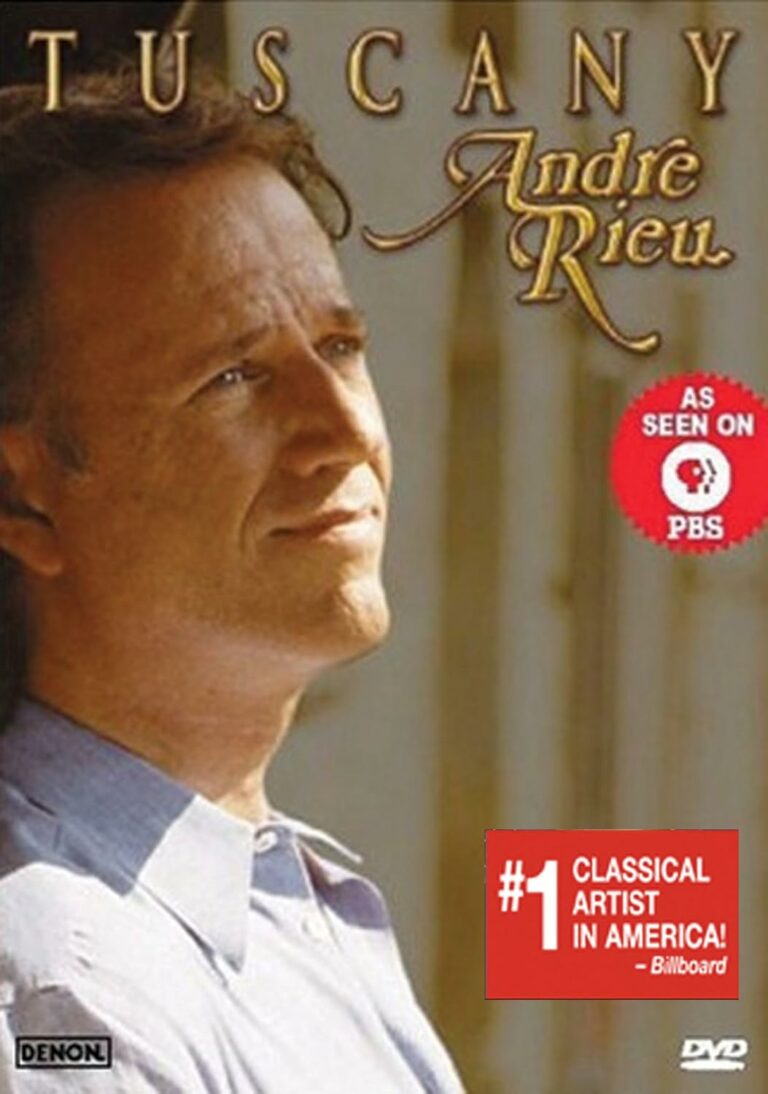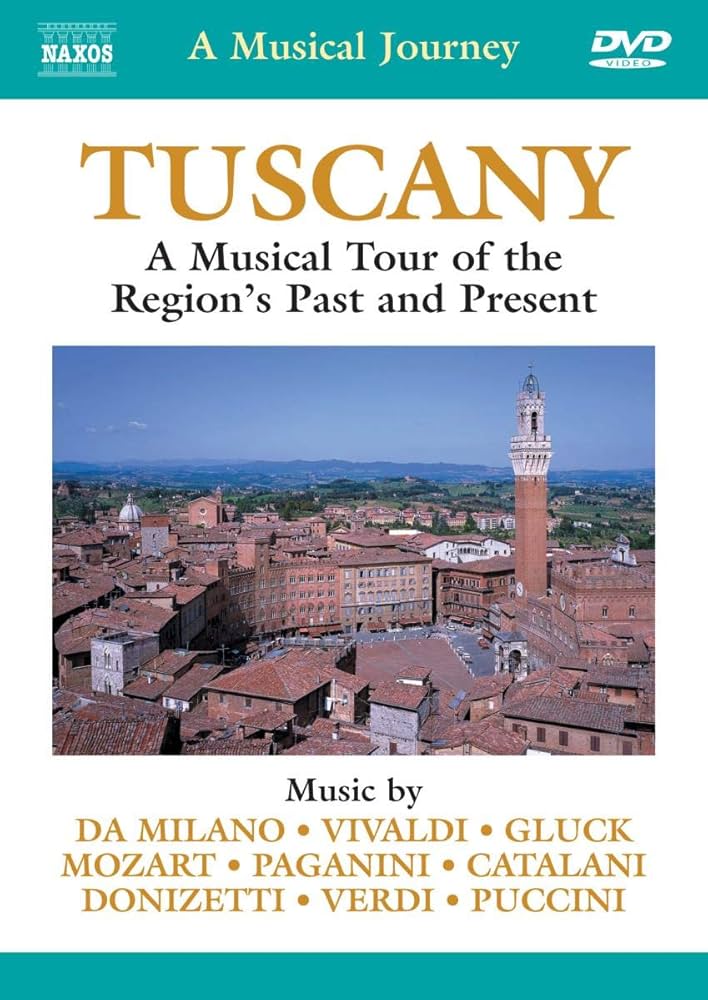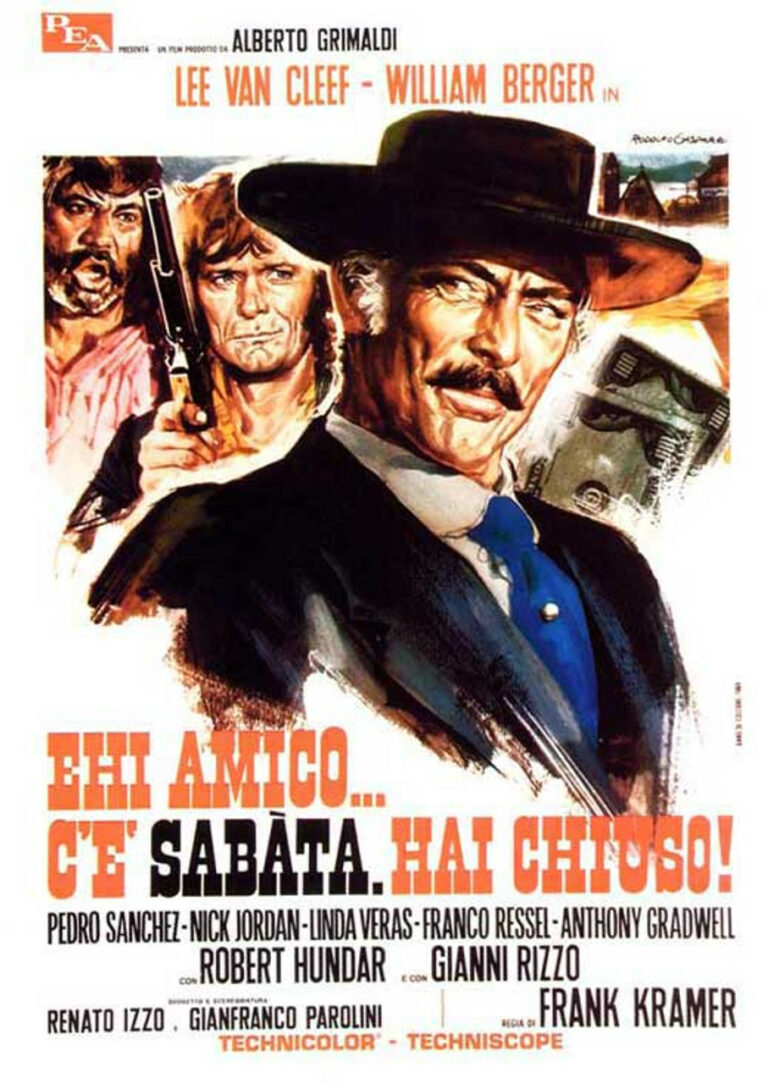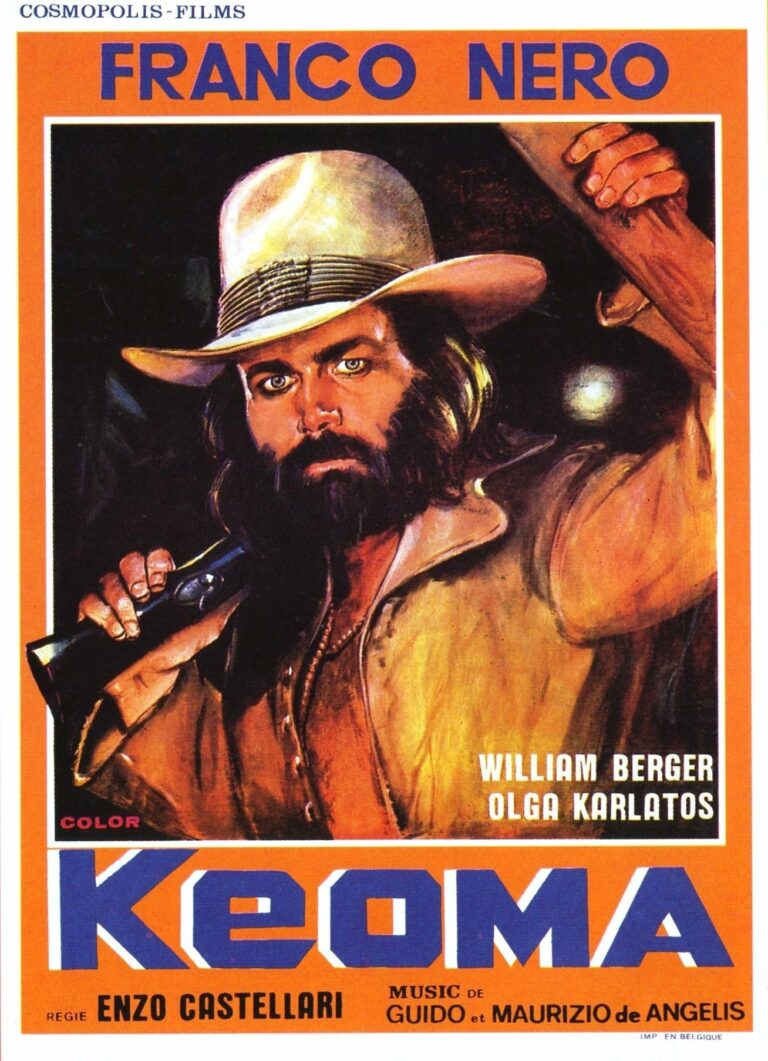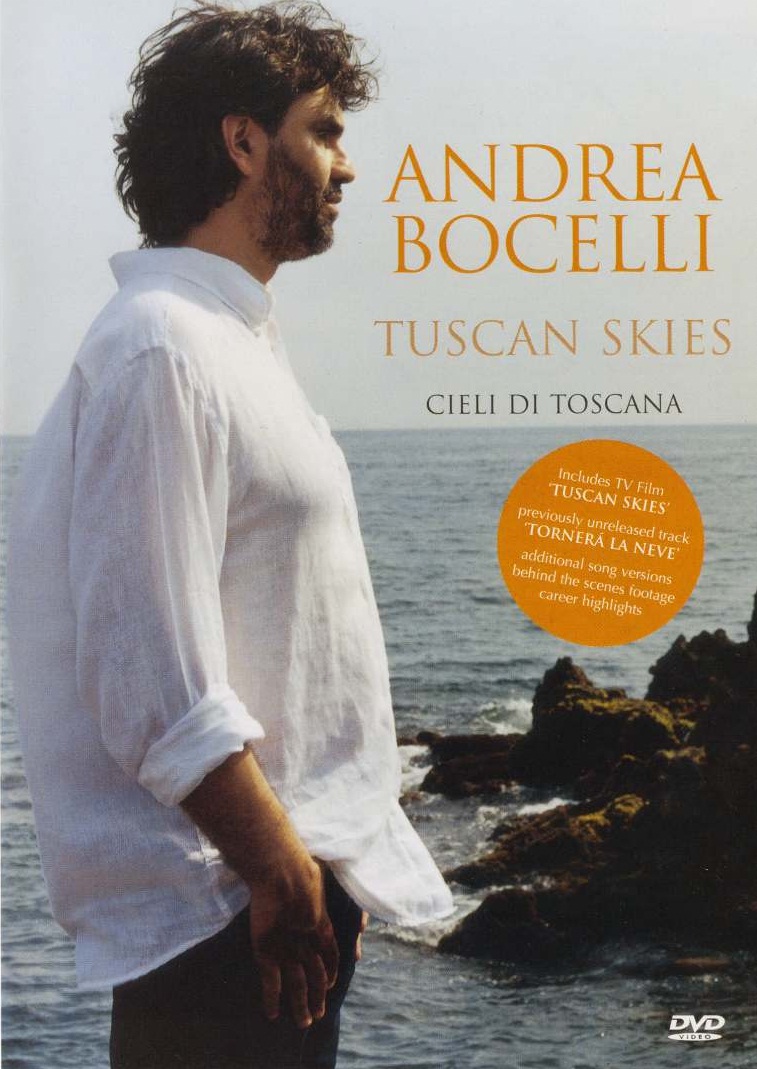
Tuscan Skies (Cieli di Toscana), released in 2001, is a musical film featuring Andrea Bocelli, the world-renowned tenor whose voice has captivated millions across the globe. The film serves as a companion to Bocelli’s studio album of the same name, showcasing his powerful vocals while immersing viewers in the breathtaking beauty of his native Tuscany. With its combination of music, scenic visuals, and personal storytelling, Tuscan Skies is both a love letter to Bocelli’s homeland and a celebration of his extraordinary talent.
This article explores the themes, music, visuals, and cultural significance of Tuscan Skies, shedding light on why it remains a cherished piece in Andrea Bocelli’s illustrious career.
Andrea Bocelli: A Voice That Transcends Boundaries
Before delving into the details of Tuscan Skies, it is essential to understand the man behind the music. Andrea Bocelli, born in 1958 in Lajatico, Tuscany, is one of the most celebrated tenors of our time. Despite losing his sight at a young age due to congenital glaucoma and a soccer accident, Bocelli’s passion for music never waned. His remarkable ability to blend classical and contemporary styles has earned him global acclaim, with albums selling millions of copies and performances gracing some of the world’s most prestigious stages.
Tuscan Skies is not only a showcase of Bocelli’s music but also a reflection of his deep connection to his Tuscan roots. The film reveals the personal side of Bocelli, offering insights into his inspirations, aspirations, and the landscapes that shaped his artistry.
Overview of Tuscan Skies
1. The Concept
The film intertwines Andrea Bocelli’s music with vignettes of his life and the Tuscan countryside. Each song is accompanied by visuals that either directly or thematically connect to the lyrics, offering a unique audiovisual experience that goes beyond a traditional concert film.
2. The Music
The soundtrack features selections from Bocelli’s album Cieli di Toscana, one of his most personal works. The album contains original songs inspired by his life, family, and the Tuscan way of living, with lyrics that evoke nostalgia, romance, and a deep sense of place. Some of the standout tracks include:
- “Melodramma”: A dramatic and emotional ballad that speaks to the power of music to express love and longing.
- “L’Incontro”: A spoken-word piece accompanied by Bocelli’s singing, featuring narration by his friend Gérard Depardieu. This track reflects Bocelli’s thoughts on life and destiny.
- “Il Mistero dell’Amore”: A lush, romantic piece that explores the mystery of love.
- “Canzoni Stonate”: A duet with pop icon Stevie Wonder, blending classical and contemporary elements in a heartfelt collaboration.
Each song in the film is brought to life with stunning visuals, creating a cinematic journey that resonates emotionally and spiritually.
3. The Visuals
Tuscan Skies is as much about the beauty of Tuscany as it is about Bocelli’s music. The film captures sweeping vistas of rolling hills, olive groves, vineyards, and historic villages, offering a feast for the eyes. These visuals not only provide a backdrop to the music but also serve as a reflection of Bocelli’s deep connection to the land and its culture.
4. Personal Narratives
Interspersed between the musical performances are intimate glimpses into Bocelli’s life. Through interviews and candid moments, viewers learn about his upbringing in Tuscany, his family, and the personal experiences that shaped his artistry. This storytelling element adds depth to the film, allowing fans to connect with Bocelli on a more personal level.
Themes: A Tribute to Life and Art
1. Love and Romance
Love is a recurring theme in Tuscan Skies, reflected in both the lyrics of the songs and the tender visuals that accompany them. Bocelli’s music has always been synonymous with romance, and the film amplifies this with its poetic imagery and heartfelt storytelling.
2. Nostalgia and Homecoming
The film’s title, Tuscan Skies, is a direct nod to Bocelli’s love for his homeland. The visuals and music evoke a sense of nostalgia, celebrating the traditions, landscapes, and memories that define Tuscany. For Bocelli, Tuscany is not just a place—it is a source of inspiration and a symbol of identity.
3. The Universal Language of Music
One of Bocelli’s greatest strengths is his ability to transcend cultural and linguistic barriers through his music. Tuscan Skies showcases this universality, with songs that appeal to audiences worldwide, regardless of their familiarity with Italian or classical music.
4. The Intersection of Art and Nature
The film draws a parallel between the natural beauty of Tuscany and the artistry of Bocelli’s music. Both are presented as timeless and harmonious, underscoring the profound connection between humanity and the environment.
The Cinematic Experience: A Visual and Auditory Feast
1. The Beauty of Tuscany
The cinematography in Tuscan Skies is breathtaking, capturing the essence of Tuscany’s charm. From the golden hues of the countryside at sunset to the rustic elegance of its architecture, every frame is a love letter to this iconic region.
2. Artistic Direction
The film’s director, Larry Weinstein, masterfully blends music and imagery to create a cohesive narrative. The transitions between songs and scenes are seamless, ensuring that the visual and auditory elements complement each other perfectly.
3. Bocelli’s Stage Presence
Whether performing in grand concert halls or intimate outdoor settings, Bocelli’s presence is magnetic. His ability to convey emotion through his voice and demeanor elevates the film, making it a truly immersive experience.
Cultural Significance: A Celebration of Italian Heritage
Tuscan Skies is more than a musical film—it is a cultural artifact that highlights the richness of Italian heritage. By showcasing the landscapes, music, and traditions of Tuscany, Bocelli invites viewers to experience the beauty and soul of his homeland. The film also serves as a reminder of the global appeal of Italian culture, with its emphasis on passion, artistry, and a deep appreciation for life’s simple pleasures.
Reception and Legacy
Upon its release, Tuscan Skies was met with critical acclaim and commercial success. Fans and critics alike praised its innovative format, stunning visuals, and Bocelli’s unparalleled vocal performance. The film appealed to a wide audience, from classical music enthusiasts to casual viewers drawn to its cinematic beauty.
The accompanying album, Cieli di Toscana, became one of Bocelli’s best-selling records, further cementing his status as a global icon. Together, the film and album represent a high point in Bocelli’s career, showcasing his ability to blend classical and popular music while staying true to his roots.
FAQs
1. What is Tuscan Skies about?
Tuscan Skies is a musical film that combines Andrea Bocelli’s performances with stunning visuals of Tuscany and personal insights into his life and artistry.
2. Is the film connected to the album Cieli di Toscana?
Yes, Tuscan Skies serves as a visual companion to Bocelli’s 2001 album Cieli di Toscana, featuring songs from the record alongside cinematic interpretations.
3. Where was Tuscan Skies filmed?
The film was shot on location in Tuscany, capturing the region’s picturesque landscapes, historic villages, and cultural landmarks.
4. What are some standout tracks from the film?
Notable songs include “Melodramma,” “L’Incontro,” “Il Mistero dell’Amore,” and the duet “Canzoni Stonate” with Stevie Wonder.
5. Who directed Tuscan Skies?
The film was directed by Larry Weinstein, known for his work on music-themed documentaries and films.
6. Why is Tuscan Skies significant?
The film showcases Bocelli’s musical talent while celebrating the beauty and culture of Tuscany, offering a unique blend of music and visual storytelling.
Conclusion: A Timeless Tribute to Tuscany and Music
Tuscan Skies is a testament to Andrea Bocelli’s extraordinary ability to inspire through his music and his deep connection to his roots. The film not only showcases his vocal mastery but also transports viewers to the enchanting landscapes of Tuscany, creating an experience that is as visually stunning as it is emotionally moving.
For fans of Bocelli, Italian culture, or simply great music, Tuscan Skies remains a must-watch—a timeless celebration of life, art, and the enduring beauty of Tuscany.
